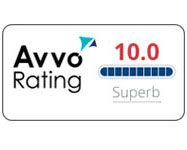An experienced elder law attorney can help you and caregivers plan for the challenges of aging, including retirement, medical care, property disposition and long term care.
A durable power of attorney designates an agent to act on your behalf even if you become incapacitated. In the absence of a power of attorney, a Court may appoint a guardian over an incapacitated person.
Through a medical power of attorney, advance medical directive or living will, you can express your wishes for medical care and name an agent to make decisions on your behalf. An attorney can draft the appropriate document to implement your instructions in the event of incapacity to give informed consent to proposed treatment.
To finance long term care or continued living at home, older persons must consider pension benefits, Medicare, other health insurance, long term care insurance, and eligibility for Medicaid. The Veterans Administration provides nursing home care and home and community based services to qualified veterans.
Participants in retirement funds should review their summary plan descriptions and confirm credit for required contributions to funds. Employees who must leave jobs before normal retirement age should promptly review possible eligibility for early retirement benefits, disability retirement, insurance, annuities or other sources of income.
Upon the death of the owner, funds may pay benefits to a designated beneficiary. A will directs the transfer of probate property to designated beneficiaries. The comprehensive estate plan should consider jointly owned property with a right of survivorship and beneficiary designations in financial instruments. In the absence of a will, the administrator of the estate must transfer property to persons entitled to inheritance under state law.
Contact us for your elder care legal planning needs.








